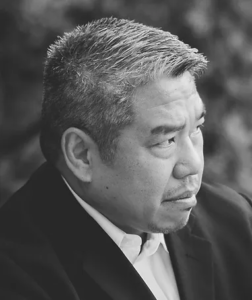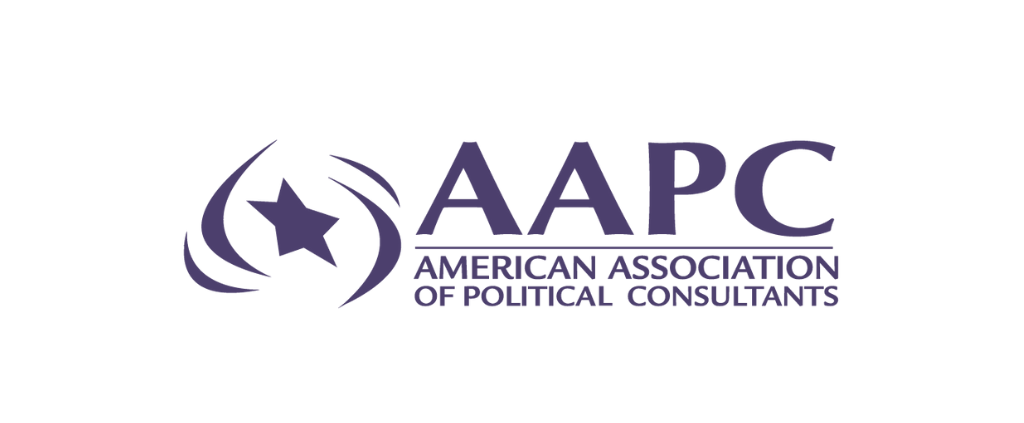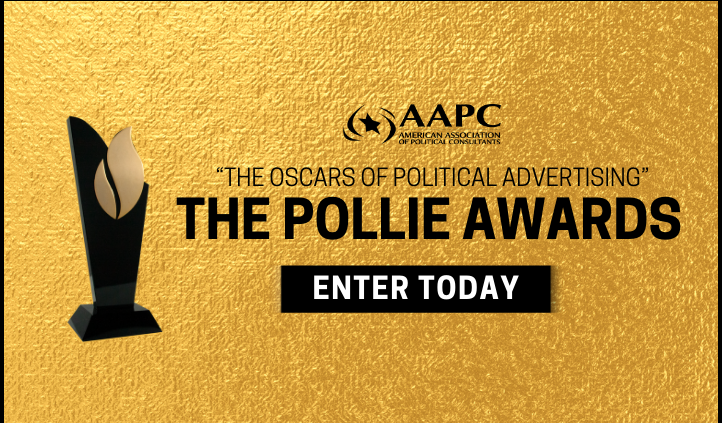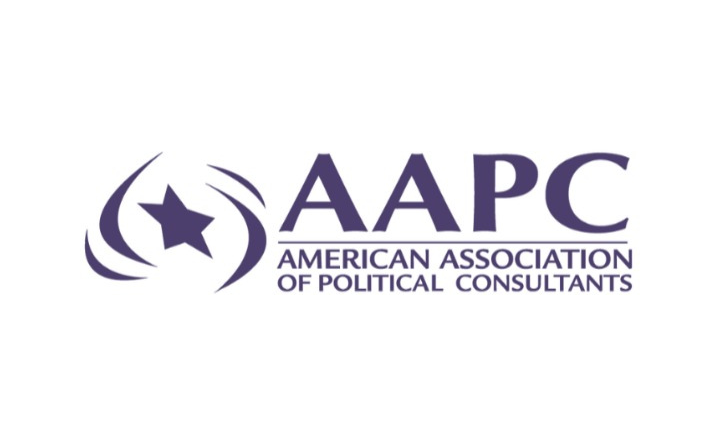AAPC Denounces Claimed AI-Generated Robocall Incident
FOR IMMEDIATE RELEASE
February 27, 2024
AAPC Denounces Claimed AI-Generated Robocall Incident
We call upon all members of the political consulting community to rigorously adhere to the AAPC’s Professional Code of Ethics and stance against the use of deceptive AI in political campaigns, reinforcing our collective responsibility to foster a political environment characterized by truthfulness and respect for the electorate.
###
About AAPC
Founded in 1969, the AAPC is a multi-partisan organization of political and public affairs professionals dedicated to advancing the field of political consulting and promoting ethical practices within the industry. We are committed to fostering a political landscape driven by integrity and transparency. AAPC members are required to adhere to its Professional Code of Ethics. The AAPC has over 1,800 members hailing from all corners of the globe. It is the largest association of political and public affairs professionals in the world. For more information about the AAPC and our Code of Ethics please visit www.theaapc.org.
Contact:
Alana Joyce
Executive Director
+1 703-245-8021
[email protected]
AAPC Supports FCC’s Historic Ruling Against AI-Generated Voice Robocalls
FOR IMMEDIATE RELEASE
February 13, 2024
AAPC Supports FCC’s Historic Ruling Against AI-Generated Voice Robocalls
###
About AAPC
Founded in 1969, the AAPC is a multi-partisan organization of political and public affairs professionals dedicated to advancing the field of political consulting and promoting ethical practices within the industry. We are committed to fostering a political landscape driven by integrity and transparency. AAPC members are required to adhere to its Professional Code of Ethics. The AAPC has over 1,800 members hailing from all corners of the globe. It is the largest association of political and public affairs professionals in the world. For more information about the AAPC and our Code of Ethics please visit www.theaapc.org.
Contact:
Alana Joyce
Executive Director
+1 703-245-8021
[email protected]
AAPC Applauds U.S. House of Representatives for Upholding Ethics in Expulsion of George Santos
FOR IMMEDIATE RELEASE
December 1, 2023
American Association of Political Consultants Applauds U.S. House of Representatives for Upholding Ethics in Expulsion of George Santos
McLean, VA – The American Association of Political Consultants (AAPC) commends the United States House of Representatives for their decisive action in expelling Representative George Santos. This move, marked by bipartisan support, underscores the commitment of our nation’s lawmakers to uphold the highest standards of integrity and accountability in public service.
“The expulsion of George Santos from Congress is a significant step in reaffirming the core values of our political system,” said Larry Huynh, President of the AAPC. “Ethics and honesty are paramount in public office, and the AAPC stands firmly behind actions that reinforce these principles.”
Santos, whose tenure in Congress has been marred by controversy and allegations of falsehoods, was expelled following a thorough investigation by the House Ethics Committee. This decision serves as a powerful reminder of the importance of truthfulness and ethical conduct in the political arena.
“As political consultants, we strive to enhance the democratic process by promoting transparency and integrity among consultants and elected officials,” added Kyle Roberts, Vice President of AAPC. “Congress’s action in this matter aligns with our mission to foster an environment where truth and accountability are non-negotiable.”
The AAPC believes that the expulsion of Santos will serve as a deterrent to future misconduct and reinforce the public’s trust in their elected representatives. We remain committed to supporting measures that strengthen the ethical framework of our political system and ensure that those in public office adhere to the highest standards of conduct.
###
About AAPC
Founded in 1969, the AAPC is a multi-partisan organization of political and public affairs professionals dedicated to improving democracy. The AAPC has more than 1,600 members hailing from all corners of the globe. The Board of Directors is comprised of thirty-two members, evenly divided between Republicans and Democrats. It is the largest association of political and public affairs professionals in the world. The AAPC Foundation supports efforts to protect free speech, defend democracy, and prepare the next generation of political consultants to thrive. For more information, see www.theaapc.org.
Contact:
Alana Joyce
Executive Director
+1 703-245-8021
[email protected]
API Voters: The Rising Political Force – Insights from Bill Wong

Bill Wong is an award winning political consultant with over 30 years of experience working for state legislators, candidates, political action committees, labor organizations, non-profit organizations, and large scale employers.
By: Bill Wong, Bill Wong LLC
An often misunderstood and overlooked voting bloc, Asian Americans and Pacific Islanders, includes East Asians, Southeast Asians, South Asians, Central Asians, and the indigenous peoples of islands in the Pacific Ocean and far northern coasts of the Arctic Sea. This community has become the margin of victory in the last two cycles in some of the most hard-fought campaigns in the nation. Nowhere is the API community more diverse and numerically significant than in California. California has the highest API population, with nearly 7 million Asian Americans. The state second to California – New York – has only 1.8 million Asian Americans. Both will be home to battleground races in 2024 that could decide control of the United States Congress.
In California, 2.3 million of the APIs are registered voters. Immediately prior to election day in 2022, API voters had the highest turnout of all major ethnic groups at 24%, beating African American and Latino voters that came in at 21% and 13% respectively. Gone are the days that API voters can be ignored. There’s a passage in my book describing a presentation by John Podesta for Hillary 2016 that I walked out of because they had polling slides for every ethnic group except APIs. I think that day was an omen to what happens to campaigns that ignore the emergent political power and impact of API voters.
Thankfully, AAPC recognizes this changing dynamic as well and has assembled a tremendous line up of Asian American voices today, including: Alex De Ocampo, Cal & D Strategies; Ron Wong, CEO of Imprenta Communications; Catherine Lew, Founder of Lew Edwards Group; Christine Mai Duc, Wall Street Journal; and, Larry Huynh, Founder of Trilogy Interactive and President of AAPC. While most of them are here to talk about general topics and not specifically about API voters, they intrinsically have unique and unparalleled insights into reaching API voters and you should consider reaching out to them.
I want to specifically single out Larry’s contribution to the craft and profession of political campaign consulting. Larry is a nationally recognized digital strategist and his work has earned dozens of awards across multiple online disciplines and he is a frequent presenter and trainer at conferences. Larry is also a trailblazer for the API community and the first person of color and first openly LGBTQ+ person to serve as president of the AAPC. He has supported the API candidates and served on API community non-profit boards. His advice and leadership have been essential in the growth of API political and civic power. More importantly, Larry is the envy of APIs everywhere because he graduated from Harvard and still found a way to pursue a successful and fulfilling career without having to become a doctor or a lawyer.
As an API consultant attending numerous conferences like the ones AAPC puts on, I can’t tell you how important and impactful it was for me to see Larry’s name and face on the agenda alongside some of the greatest consultants in our business. It made me proud to be an Asian American and it inspired me to stick with this profession through difficult times and to work harder at mastering the craft.
Deadline Political Editor Discusses How Culture, Politics and Blockbusters Collide
By: Ted Johnson, Deadline Hollywood
Most moviegoers went to this year’s biggest blockbuster Barbie and came away pleased by its quirky entertainment, but in the weeks up to its release, there was a simmering battle over what the movie meant to the cultural zeitgeist. Warner Bros. Discovery threw a lavish pre-screening party at the British ambassador’s residence, all designed to highlight what the movie said about women’s empowerment. Contrast that to Ben Shapiro, the founder of the conservative site The Daily Wire, posted videos of himself burning Barbies after watching the movie, which he deemed too “woke.” Studios, networks and streamers have come to rely on social media and high profile word-of-mouth as they market their projects, but they also have to factor in the very real possibility of backlash, as so much of culture gets weaponized.
Capitalizing on the attention that comes from Hollywood and the hundreds of millions poured into a marketing push, political figures, pundits and podcast hosts try to influence public taste for movies and TV shows, to their advantage and their detriment.The campaign against Barbie didn’t hurt its ticket sales, as Warner Bros. Discovery fired on all cylinders to make sure that the movie had strong awareness and a blockbuster opening.
At the same time, Shapiro’s campaign against it translated into millions of views on Twitter and YouTube, while perhaps calling attention to his own ambitions for his company’s efforts to go beyond politics into entertainment content. This effort to tap pop culture for partisan gain is not new. Flash back more than 30 years to Vice President Dan Quayle’s attack on Murphy Brown, giving birth as a single mother, “mocking the importance of fathers.”
In the midst of a presidential campaign, it helped solidify Quayle’s status as a figure who could appeal to the right. The show itself capitalized on the controversy, to the tune of blockbuster ratings.The difference now is the frequency and intensity, spread on YouTube, TikTok and Twitter, that can have an actual impact on a portion of the audience.
Other projects have suffered. Five years ago, Universal released First Man, about the life of Neil Armstrong. Sen. Ted Cruz (R-TX) and others on the right stirred a campaign against it because it did not feature the iconic close up shot of Armstrong planting the flag on the lunar surface, triggering the idea that the move was somehow un-American. Despite strong reviews and a launch event at the National Air and Space Museum, the movie proved to be a box office disappointment. The absence of the flag was not the only reason for this, but studio executives privately fretted that it certainly did not help. In other cases, artists capitalized on the negative attention. After an outcry over his Try That In A Small Town, with Country Music Television pulling the song, Jason Aldean fueled a backlash that helped solidify it as a hit.
As Hollywood studios try to manage the downsides, political figures who wade into pop culture also risk getting mired in a battle with an uncertain endgame. Ron DeSantis initially made Disney part of his presidential campaign, accusing the company of supporting the sexualization of minors after it came out against his parental rights legislation, known to its detractors as the “don’t say gay” law. But his attacks have gotten mired in the courts, in a rather complicated battle over a special district that covers Walt Disney World. As his chief rival Donald Trump expanded his lead, DeSantis said that he had “moved on” from the fight.
In the coming months, Hollywood will be in the spotlight as a congressional committee turns its attention to studio relationships with China, adding additional scrutiny to whether movies have been tailored to ensure entry into the country’s marketplace. Inevitably, some other studio release this year will become a target. You can be sure plenty will be scrutinized with Warner Bros. Discovery’s next big release, Wonka. And as the rhetoric heats up, studios will have to be ever more sophisticated in countering the drummed up controversies.







